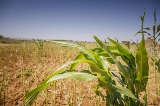
The role of social protection in mitigating the effects of rainfall shocks. Evidence from Ethiopia
2023
We examine how social protection programs in Ethiopia affect smallholder farmers facing adverse rainfall shocks. Our findings show mixed effects: public works reduce productivity, especially during shocks, while free food recipients see higher sales and profits. Cash transfers have a neutral impact on production but increase farming profitability.

Social Protection and Rural Transformation in Africa. Annual Review of Resource Economics.
2023
This article develops a conceptual framework on pathways through which noncontributory social protection can support resilient and inclusive agricultural growth in rural Africa. It draws insights from a review of rigorous empirical evidence on the impacts of cash transfers and multifaceted cash plus programs on a range of relevant productive outcomes.
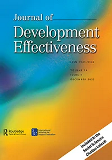
Evaluating spillovers and cost-effectiveness of complementary agricultural and social protection interventions: evidence from Lesotho
2023
We present findings from a study of the local-economy impacts of Lesotho’s Child Grants Programme and of a multi-faceted rural development intervention. We designed a micro-data parameterised general equilibrium model and used it to simulate the direct and indirect impacts of the two interventions, considering income and production spillovers.
.tmb-th600x450.jpg?Culture=en&sfvrsn=186520a4_1)
Cash transfers’ role in improving livelihood diversification strategies and well-being: short- and medium-term evidence from Zimbabwe
2022
This paper contributes to the literature on the determinants of rural livelihood diversification and its impact on household welfare in the short and medium term using data from a government-run social protection program in Zimbabwe.
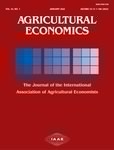
A local general-equilibrium emergency response modeling approach for sub-Saharan Africa
2022
This article describes an unusual micro general-equilibrium (GE) modeling approach that we developed to quickly simulate impacts of the pandemic and lockdowns on poor and non-poor rural and urban households across sub-Saharan Africa.
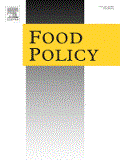
Mediation analysis of the impact of the Zimbabwe Harmonized Social Cash Transfer Programme on food security and nutrition
2022
This paper analyses the causal effects of the Zimbabwe Harmonized Social Cash Transfer (HSCT) programme on food security and nutrition after 12 months of implementation. Through mediation analysis, we disentangle the total effect of the programme on its direct effect due to the greater liquidity of beneficiary households, which increases the affordability of food, and its indirect effect mediated by an increase in agricultural activities.
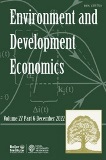
The challenge of making climate adaptation profitable for farmers: evidence from Sri Lanka's rice sector
2021
This paper presents evidence on the adoption drivers and the welfare impacts of agricultural strategies adopted by Sri Lankan rice farmers to adapt to low rainfall conditions.
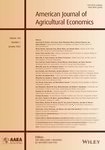
Adapting to High Temperatures: Effect of Farm Practices and Their Adoption Duration on Total Value of Crop Production in Uganda
2021
In this article, we use spatially granular climate data merged with four waves of household survey data in Uganda to examine empirically the relationships among high temperatures, total value of crop production, and the adoption and adoption duration of two sustainable agricultural practices (organic fertilizer adoption and maize–legume intercropping).
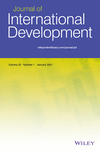
Government Transfers and Time Allocation Decisions: The Case of Child Labour in Ethiopia
2021
We exploit the social cash transfer programme in Ethiopia to study how an increase in unearned income through a government transfer affects children's work time allocation and their school attendance rate. In rural areas, the transfer led to a half an hour reduction in the total number of hours worked, while in urban areas, transfers had the opposite impacts, worsening the child labour situation with no impacts on the share of children attending school.
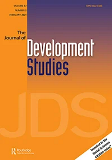
Diversification is in the Detail: Accounting for Crop System Heterogeneity to Inform Diversification Policies in Malawi and Zambia
2020
Crop diversification is a common agricultural policy objective. However, the determinants and impacts of crop diversification are heterogeneous and depend on a range of crop-specific characteristics. Index-based measurements of crop diversification, common in the agriculture economics literature, are unable to account for this heterogeneity.
.tmb-th600x450.jpg?Culture=en&sfvrsn=f6852fc9_1)
Climate resilience in rural Zambia: evaluating farmers’ response to El Niño-induced drought
2020
This paper aims at identifying whether and how sustainable land management practices and livelihood diversification strategies have contributed to moderating the impacts of the El Niño-related drought in Zambia.
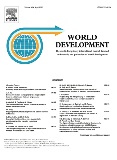
Leveraging social protection to advance climate-smart agriculture: An empirical analysis of the impacts of Malawi’s Social Action Fund (MASAF) on farmers’ adoption decisions and welfare outcomes
2020
This article assesses the interactions between participation in Malawi’s largest public works programme, the Malawi Social Action Fund (MASAF), and three widely promoted climate smart agriculture (CSA) practices.
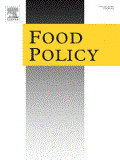
Does receiving food aid influence the adoption of climate-adaptive agricultural practices? Evidence from Ethiopia and Malawi
2020
This article provides evidence on the relationships between food aid and the adoption of climate adaptive agricultural practices (CAPs) in the context of smallholder households in Ethiopia and Malawi.
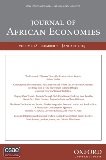
Shaping Cash Transfer Impacts Through ‘Soft-Conditions’: Evidence from Lesotho
2019
Cash transfer programmes have been shown to have positive effects on a variety of outcomes. While much of the literature focuses on the role of conditionality in achieving desired impact, this paper focuses on the role of ‘soft conditionality’ implemented through both ‘labelling’ and ‘messaging’ in evaluating the impact of the Child Grants Program in Lesotho, an unconditional cash transfer programme targeting poor households with orphans and vulnerable children.
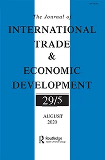
Stuck exchange: Can cash transfers push smallholders out of autarky?
2019
This paper focuses on the role of unconditional cash transfers in helping smallholders’ commercialization by overcoming barriers to trade from transaction costs. We use data from a controlled experiment for the evaluation of the Child Grant model in Zambia. We employ a Heckman model that allows us to capture the effects of the program on the propensity to engage in trade in both inputs and outputs markets as well as on the value of trade.

Unconditional cash transfers, risk attitudes and modern inputs demand
2019
We estimate the effects of cash transfers on modern inputs demand, while isolating the role of output risk and risk preferences in channeling these effects. We use data from an RCT collected for the evaluation of Zambia’s Social Cash Transfer. We employ a moments-based method to estimate farmers’ risk attitudes from revealed preferences through production decisions and the impact of cash transfers on modern input demand.
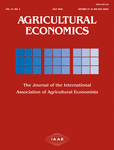
Rural in-migration and agricultural development: Evidence from Zambia
2019
While a considerable body of literature has developed in recent years around the drivers and consequences of rural out-migration in sub-Saharan Africa, relatively little work has been done to understand the impacts of migration into rural areas. We use nationally representative household survey data from Zambia to explore the relationship between rural in-migration and agricultural productivity outcomes in receiving communities.
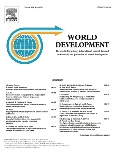
Heterogeneous impact of livelihood diversification on household welfare: Cross-country evidence from Sub-Saharan Africa
2019
This article investigates the empirical linkages between crop and livelihood diversification strategies, extreme weather events, and household welfare using a unique dataset that integrates harmonized, national representative household surveys and geo-referenced climatic information collected in Malawi, Niger and Zambia.
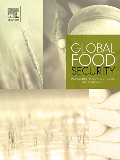
Sustainable agricultural intensification in an era of rural transformation in Africa
2019
Drawing on Boserupian and induced innovation principles, this review explores how the farm technologies and practices associated with integrated soil management and sustainable intensification may vary spatially according to the heterogenous ways in which economic transformation and population dynamics are influencing agricultural factor prices. Long-term trends in many areas are encouraging intensification of capital inputs, including fertilizer use.
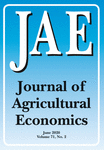
Do Medium-scale Farms Improve Market Access Conditions for Zambian Smallholders?
2019
This study is motivated by the need to understand how the rise of medium-scale farms in Africa is affecting small-scale farm households. Survey evidence over the past decade has shown a dramatic rise in the prevalence of ‘medium’ sized farms between 5 and 100 hectares, but smaller farms still constitute the vast majority of farms and rural households.
